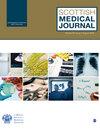第二阶段精原细胞瘤的治疗:当代英国的观点
IF 1.4
4区 医学
Q2 MEDICINE, GENERAL & INTERNAL
引用次数: 4
摘要
背景和目的睾丸生殖细胞肿瘤(TGCT)是最常见的年轻成年男性癌症,即使有转移性疾病,也有良好的生存结果。化疗、放射治疗和手术是国际生殖细胞癌症合作小组(IGCCCG)“良好风险”TGCT的国际指导方针指定的护理标准(SOC)治疗,但与显著的毒性相关。降级治疗旨在降低治疗发病率,同时保持治愈率,并已被一些IIA/B期精原细胞瘤中心采用。在这里,我们报道了当代英国IIA/B期精原细胞瘤的治疗情况。方法对英国国家医疗服务体系(NHS)指定的癌症专科中心提供跨区域专家多学科团队(sMDT)服务(n = 13) 以及苏格兰国家医疗服务体系(NHS Scotland)、威尔士国家医疗服务系统(NHS Wales)和北爱尔兰卫生和社会护理机构(Health and Social Care Northern Ireland)内部的人员。受访者被要求对IIA/B期精原细胞瘤的SOC和治疗降级治疗进行排序。结果我们发现治疗偏好存在显著的地理异质性。虽然多达三分之一的中心采用了治疗降级方案,但大多数中心提供联合化疗或放疗。结论更广泛地认识到英国治疗的异质性,并考虑超区域sMDT的治疗降级策略,将增加IIA/B期精原细胞瘤治疗的选择,作为肿瘤学和生活质量终点临床试验的一部分。本文章由计算机程序翻译,如有差异,请以英文原文为准。
Management of stage II seminoma: a contemporary UK perspective
Background and Aims Testicular Germ Cell Tumours (TGCTs) are the commonest young adult male cancer, with excellent survival outcomes even with metastatic disease. Chemotherapy, radiotherapy, and surgery are international guideline-dictated standard of care (SOC) treatments for International Germ Cell Cancer Collaborative Group (IGCCCG) “good risk” TGCT, but are associated with significant toxicities. Therapy de-escalation aims to reduce treatment morbidity whilst preserving cure rates, and has been adopted by some centres for stage IIA/B seminoma. Here, we report on the contemporary UK treatment landscape for stage IIA/B seminoma. Methods A questionnaire-based survey of NHS England-designated specialist cancer centres hosting supra-regional specialist multi-disciplinary team (sMDT) services (n = 13) as well those within NHS Scotland, NHS Wales and Health and Social Care Northern Ireland. Respondents were asked to order preferences of SOC and therapy de-escalation treatments for stage IIA/B seminoma. Results We identified significant geographical heterogeneity in treatment preferences. Whilst up to a third of centres have adopted a treatment de-escalation regimen, the majority deliver combination chemotherapy or radiotherapy. Conclusion A wider recognition of UK treatment heterogeneity and consideration of therapy de-escalation strategies at supra-regional sMDTs will increase stage IIA/B seminoma treatment options as part of clinical trials with oncological and quality of life endpoints.
求助全文
通过发布文献求助,成功后即可免费获取论文全文。
去求助
来源期刊

Scottish Medical Journal
医学-医学:内科
CiteScore
4.80
自引率
3.70%
发文量
42
审稿时长
>12 weeks
期刊介绍:
A unique international information source for the latest news and issues concerning the Scottish medical community. Contributions are drawn from Scotland and its medical institutions, through an array of international authors. In addition to original papers, Scottish Medical Journal publishes commissioned educational review articles, case reports, historical articles, and sponsoring society abstracts.This journal is a member of the Committee on Publications Ethics (COPE).
 求助内容:
求助内容: 应助结果提醒方式:
应助结果提醒方式:


